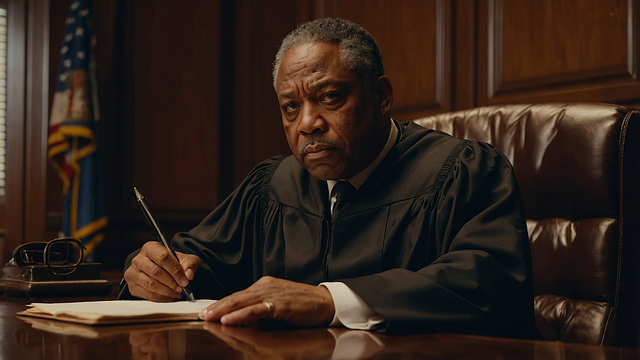Regulatory compliance in white-collar defense requires understanding ethical considerations beyond legal requirements, especially with plea bargaining agreements. These agreements, crucial for avoiding indictment, demand transparency, fairness, and accountability to ensure justice while offering leniency. Balancing these factors is complex, necessitating organizations, particularly in highly regulated sectors, to incorporate ethical frameworks into compliance strategies to foster a culture of integrity. Effective navigation involves proactive monitoring, regular internal audits, and cultivating an ethical mindset, ensuring a nuanced understanding of legal and moral imperatives. In high-stakes cases, clear communication and open dialogue are key, empowering individuals and corporations to understand potential impacts and aiming for favorable defense verdicts that withstand scrutiny.
Regulatory compliance is a critical aspect of any legal system, ensuring fairness and integrity. This article delves into the intricate world of regulatory compliance issues, with a specific focus on plea bargaining agreements. We explore the ethical implications and considerations surrounding these deals, including their impact on procedural fairness and transparency. By examining potential loopholes and challenges, we uncover strategies to enhance ethical plea bargaining practices, promoting a more just and transparent legal process. Understanding these complexities is vital for both legal professionals and policymakers alike.
- Understanding Regulatory Compliance and its Ethical Implications
- The Role of Plea Bargaining Agreements in Legal Proceedings
- Ethical Considerations: Fairness and Transparency in Plea Deals
- Potential Loopholes and Challenges in Compliance Adherence
- Strategies for Enhancing Ethical Plea Bargaining Practices
Understanding Regulatory Compliance and its Ethical Implications

Regulatory compliance goes beyond mere adherence to legal requirements; it involves a deep understanding of ethical considerations that shape business practices. In the context of high-stakes cases, such as white collar defense, navigating regulatory compliance becomes an art. Organizations and individuals must recognize that their actions have broader implications, especially when negotiating plea bargaining agreements. These agreements, often crucial in avoiding indictment, can significantly impact not just the involved parties but also society at large.
Ethical considerations in plea bargaining agreements demand transparency, fairness, and accountability. They ensure that justice is served while providing a degree of leniency to offenders who cooperate with authorities. However, striking the right balance between these factors remains a complex task. Effective compliance strategies must therefore incorporate ethical frameworks, fostering a culture of integrity within organizations, particularly in sectors where regulatory oversight is stringent.
The Role of Plea Bargaining Agreements in Legal Proceedings

Plea bargaining agreements play a significant role in legal proceedings, offering a strategic alternative to traditional jury trials. These agreements, reached between prosecutors and defendants, allow for the resolution of criminal cases outside of court. This process is particularly prevalent across the country, affecting both corporate and individual clients. The practice involves the defendant pleading guilty to a lesser charge or accepting certain conditions in exchange for a reduced sentence or avoided prosecution entirely.
While plea bargaining agreements streamline the legal system and can be beneficial for all parties involved, they also raise ethical considerations. The primary concern revolves around ensuring the defendant’s understanding of the agreement and its consequences. Lawyers representing corporate or individual clients must carefully evaluate the terms to safeguard their interests and maintain integrity in the process. Furthermore, the potential for coercion or unfair manipulation highlights the need for transparent and equitable practices in plea bargaining, balancing the rights of both the prosecution and defense.
Ethical Considerations: Fairness and Transparency in Plea Deals

In the realm of criminal justice, ethical considerations are paramount, especially when it comes to plea bargaining agreements. Fairness and transparency are cornerstones that ensure the integrity of the process, particularly in high-stakes cases involving white-collar and economic crimes. Plea deals offer a critical path for resolving complex legal matters efficiently, but they must be meticulously structured to avoid any perception or reality of unfair treatment. This is crucial throughout all stages of the investigative and enforcement process.
Transparency ensures that defendants understand their rights and the potential consequences of accepting a plea bargain. It also fosters public trust in the system by demonstrating that justice is served without favoritism. In a landscape where accusations can be far-reaching and damaging, fairness in plea bargaining agreements becomes a bulwark against arbitrary decisions. This ethical approach not only safeguards the defendant’s rights but also reinforces the integrity of the legal process, ensuring it remains a symphony of justice rather than a labyrinthine enigma.
Potential Loopholes and Challenges in Compliance Adherence

Regulatory compliance is a complex landscape with potential loopholes and challenges that organizations often face. One intricate aspect is the ethical considerations in plea bargaining agreements, which can vary widely across the country. While these agreements offer a degree of flexibility for both prosecutors and defendants, they also present risks. For his clients, navigating these complexities requires a deep understanding of not only legal frameworks but also moral imperatives to ensure adherence to the highest standards.
Across the country, efforts to streamline compliance have led to increased scrutiny and stricter enforcement. This has made it crucial for businesses and individuals alike to stay informed about evolving regulations. However, the dynamic nature of these changes can create challenges, as what was once compliant may suddenly become non-compliant without clear guidance or notice. Effective strategies involve proactive monitoring, regular audits, and fostering a culture of ethical compliance within organizations.
Strategies for Enhancing Ethical Plea Bargaining Practices

In the realm of criminal justice, ethical considerations in plea bargaining agreements are paramount. To enhance these practices, legal professionals must prioritize transparency and fairness throughout negotiations. This involves clearly communicating the terms and consequences of plea deals to both corporate and individual clients, ensuring they understand the potential implications on their future. By fostering open dialogue, lawyers can navigate complex high-stakes cases more effectively, ultimately aiming for winning challenging defense verdicts that stand up to scrutiny.
Moreover, integrating robust internal review processes can help maintain ethical standards. Regular assessments of plea bargaining strategies allow legal teams to identify and address any potential biases or unfair advantages. This commitment to integrity not only strengthens the attorney-client relationship but also bolsters public trust in the justice system, particularly when corporate clients are involved, where the stakes are often higher and the implications more far-reaching.
In navigating the intricate landscape of legal proceedings, understanding regulatory compliance and its ethical implications is paramount. The article has explored various facets, from the role of plea bargaining agreements to potential loopholes and challenges in adherence. By emphasizing fairness, transparency, and enhancing plea bargaining practices, we can ensure that justice is served while upholding the highest ethical standards. Implementing strategies to mitigate risks and promote accountability is crucial for a robust and equitable legal system, fostering public trust and confidence in our judicial processes. Ethical considerations in plea bargaining agreements are not just recommendations but essential safeguards for a fair and transparent legal environment.






